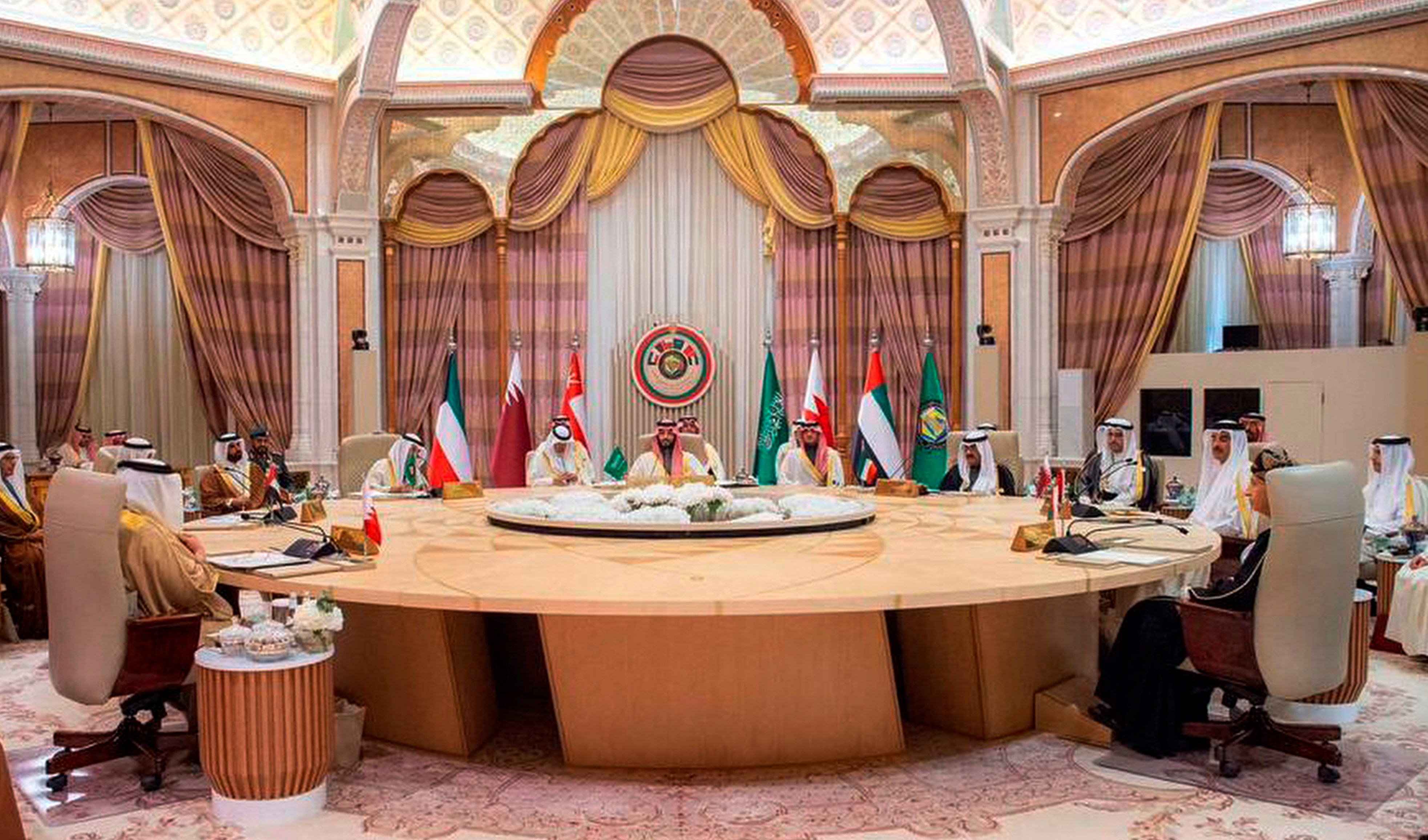Saudi Arabia to host ministerial meeting of Gulf Cooperation Council
A ministerial meeting for the Gulf Cooperation Council headed by Foreign Ministers of the Gulf countries is set to be held later on Wednesday.
-

In this photo made available by Saudi Press Agency, Saudi Crown Prince Mohammed bin Salman, talks with Gulf Arab leaders during the Gulf Cooperation Council (GCC) Summit, in Riyadh, Saudi Arabia, Friday, Dec. 9, 2022 (SPA)
The Gulf Cooperation Council will have a ministerial meeting, in Riyadh, Saudi Arabia, on Wednesday.
The meeting will include Foreign Ministers of Kuwait, Bahrain, Oman, the United Arab Emirates, and Saudi Arabia to discuss a number of regional and international issues and agendas.
Significantly, US Secretary of State Antony Blinken, who has been on a visit to Saudi Arabia, will also attend the meeting with the intention to discuss Gulf-US cooperation in the fields of security and regional economy.
Blinken in Saudi Arabia to mend Washington's frayed ties with Riyadh
Blinken on Tuesday arrived in Riyadh on a trip to strengthen strained ties with the Kingdom.
Blinken's three-day visit will also focus on efforts to end the war in Sudan and Yemen, the alleged battle against the so-called Islamic State (IS), as well the normalization process with the Israeli occupation, AFP reported.
The top US diplomat's visit comes a couple of months after a Chinese-brokered agreement that restored diplomatic ties between Iran and Saudi Arabia and the restoration of relations between Riyadh and Damascus, 12 years after the war on Syria erupted.
"There is just a tremendous amount of work that we're trying to do," US State Department senior official dealing with Arabian Peninsula affairs, Daniel Benaim, indicated before Blinken's trip.
"We're focused on an affirmative agenda here and the great deal of work our countries can do together."
Blinken landed in Jeddah on Tuesday evening and is expected to meet Saudi Arabia's Crown Prince Mohammad bin Salman, AFP cited a US official as saying, before heading to Riyadh on Wednesday for a Gulf Cooperation Council meeting.
US-Saudi relations, centered for decades on energy and defense, were strained by the 2018 murder of journalist Jamal Khashoggi by Saudi agents.
Washington was also upset when Riyadh, the world's biggest oil exporter, refused to help bring down skyrocketing energy prices after the start of the Ukraine war in February last year.
Read more: UAE withdraws from US-led Middle East Maritime Security Alliance

 2 Min Read
2 Min Read








